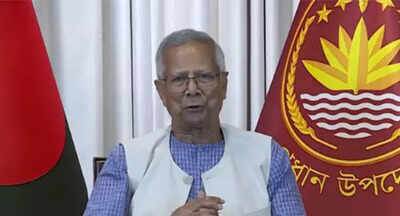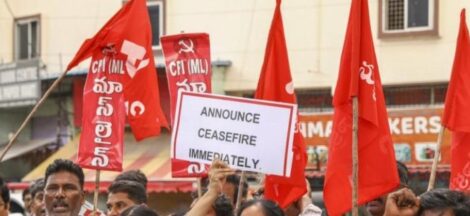By Sudarsana Kundu / Arundhati Sridhar
We are at a critical juncture in the relationship between the citizen and the State in India. The concept of individuals as rights-bearing citizens has been overshadowed by the State’s authority in every sphere, effectively reshaping the very foundation of democracy.
Since 2014, when the Bharatiya Janata Party came into power at the centre, India has witnessed dramatic democratic backsliding that has had a direct and dire bearing on women’s rights and gender equality. Drawing on Susan Faludi’s seminal work, we characterise this as a ‘backlash’: a “powerful counterassault on women’s rights”, a reactionary force that systematically erodes and reverses the hard-fought gains of the feminist movement.
Our research is situated within a broader global initiative, “Countering Backlash: Reclaiming Gender Justice,” coordinated by the Institute of Development Studies, which seeks to understand and respond to these challenges across multiple countries.
This erosion of civil society autonomy and its freedom of expression is being accomplished in a variety of ways in India. An increasingly popular tool used by government actors to restrict the autonomy and functioning of civil society organisations (CSOs) in India is the use of funding laws and related regulations.
The issue of foreign funding has been fraught from the early years of independent India, and the law has been used frequently to target non-governmental organisations (NGOs) by restricting their access to overseas funding. Over the years, the law has undergone multiple amendments, with significant revisions introduced in 2010 and 2020, which have led CSOs to contend that the government is weaponising the FCRA to suppress dissent. The massive clampdown has resulted in 6677 NGOs losing their FCRA licenses between 2017 and 2021.
The use of the law “selectively to silence critical voices” has been a particular hallmark of the current government and has been raised as a concern by multiple United Nations representatives, who maintained that the FCRA “do not meet the obligations of the Union of India under international law”, and has had a “detrimental impact on the right to freedom of association and expression of human rights NGOs”, and called on the government to repeal the law. The 2020 Amendment has indeed tightened the noose around NGOs, especially those seeking accountability from the government on behalf of marginalised communities.
Between December 2022 and June 2023, our research, based on focus group discussions with approximately 74 feminist organizations across India, revealed that the pervasive fear of shutdowns has severely impacted feminist organizing. This has led to the loss of international funding sources and posed an existential threat to women’s rights organizations (WROs), which have always contended with resource precarity within Indian civil society.
Access to international funding is essential for many feminist organisations, as domestic philanthropy has historically shown limited interest in gender equality initiatives with only 1 percent of domestic philanthropic and corporate social responsibility (CSR) funds being allocated to such causes. Furthermore, domestic philanthropy rarely addresses structural inequalities that cause and contribute to gender disparities. Therefore, many WROs, already battling systemic oppression, now face financial asphyxiation—another deliberate tactic to dismantle movements that challenge patriarchal and nationalist agendas.
The FCRA amendments made tangible the ‘backlash’ on women’s rights organising, directly through the cancellations of FCRA licenses of WROs, and indirectly through restrictions on sub-granting which left many smaller organisations and collectives unsupported. It has also had a cascading effect. Local funders have withdrawn support from organisations without FCRA clearance, leading to the depletion of funds for fellowships, scholarships, and small grants.
While both small and large organisations are resource-starved, their challenges differ. Smaller organizations – a majority of the WROs – that earlier relied on sub-granting, now find it difficult to secure funding due to limited access to major domestic funders. Moreover, their minimal revenues make them less attractive to these funders, who tend to favour organizations that can demonstrate significant scale. On the other hand, many of the larger WROs were forced to make abrupt changes in project plans and organisational structures to comply with the 20 percent limitation on administrative expenses. Most WROs have faced financial instability, leading to operational downsizing, program closures, and staff layoffs. The deliberate targeting of foreign donors has disproportionately affected marginalized women, including Dalit, LBTQIAP+, and economically disadvantaged groups and ethnic minority women, who receive minimal support from domestic funding sources.
Boxed in by these constraints, several organisations have shifted toward service delivery initiatives, thereby diverting resources away from advocacy and systemic change efforts. The impact of this shift is evident in the retraction of the ‘policy space’, which had earlier enabled the women’s movement to influence key legislations, such as the Domestic Violence Act (2005) or the Criminal Law (Amendment) Act, 2013. As one WRO leader noted, “Civil society coming together is also not happening on the scale that we have seen before 2014. …. Now, women’s groups are sometimes coming on the street, but that kind of convening is not happening.”
The vague and ever-expanding interpretation of ‘organisation of a political nature’ has also severely restricted the ability of WROs to engage in public opposition to government policies, including institutional organizing at the grassroots level, participating in protests, signing of petitions, and movement-building efforts. For instance, one Indian activist noted, “I have come to the conclusion that if the organization is to survive, then you must give up all this advocacy and such.”
Additionally, increased regulatory burdens—such as more frequent and intensive government audits—have created a scenario where the WROs face ‘death by a thousand cuts’, making it increasingly difficult for them to sustain their work.
As one WRO leader told us, “We spend so much money right now on administrative and financial compliances, we have internal auditors, and external auditors… jo ek choti sanstha toh bilkul khatam ho gayi hai. Our small organisation is on the verge of being extinguished” Furthermore, persistent harassment by the Enforcement Directorate and Intelligence Bureau has discouraged individuals from joining NGO boards, weakening institutional support and discouraging potential allies.
High-profile cases also demonstrate how FCRA regulations have been selectively used against women human rights defenders. The Lawyers’ Collective, co-founded by Indira Jaising and Anand Grover, and Sabrang Trust, led by Teesta Setalvad, both had their FCRA licenses revoked—widely seen as a retaliation for their legal advocacy, particularly in defending women’s rights and supporting Muslim communities.
In addition to the material starving of WROs, they have also faced indirect repression through misinformation and smear campaigns that build narratives that delegitimize the very existence of these organisations, and that have started casting advocacy and rights-based work as fundamentally ‘anti-national’. Conservative nationalist narratives frame foreign-funded women’s rights organisations as adversaries of India’s cultural ethos wherein feminism is portrayed as a Western import that disrupts family structures and social harmony. This narrative is amplified by right-wing media and online platforms, further reinforcing the claim that external funding is designed to erode Hindu political dominance and is part of a larger conspiracy against India’s sovereignty.
The systematic backlash against CSOs has created a chilling effect on feminist organising, the long-term consequences of which remain uncertain. Feminist organisations play a critical role in shaping policy, shifting normative behaviours, advocating for survivors of gender-based violence, and providing essential services. By restricting their ability to function, the state is not only suppressing activism but also eroding the gains made in women’s rights over the past few decades. (IPA Service)
Courtesy: The Leaflet




 CPI-M Meet Endorses Blueprint For Kerala’s Future Development
CPI-M Meet Endorses Blueprint For Kerala’s Future Development 